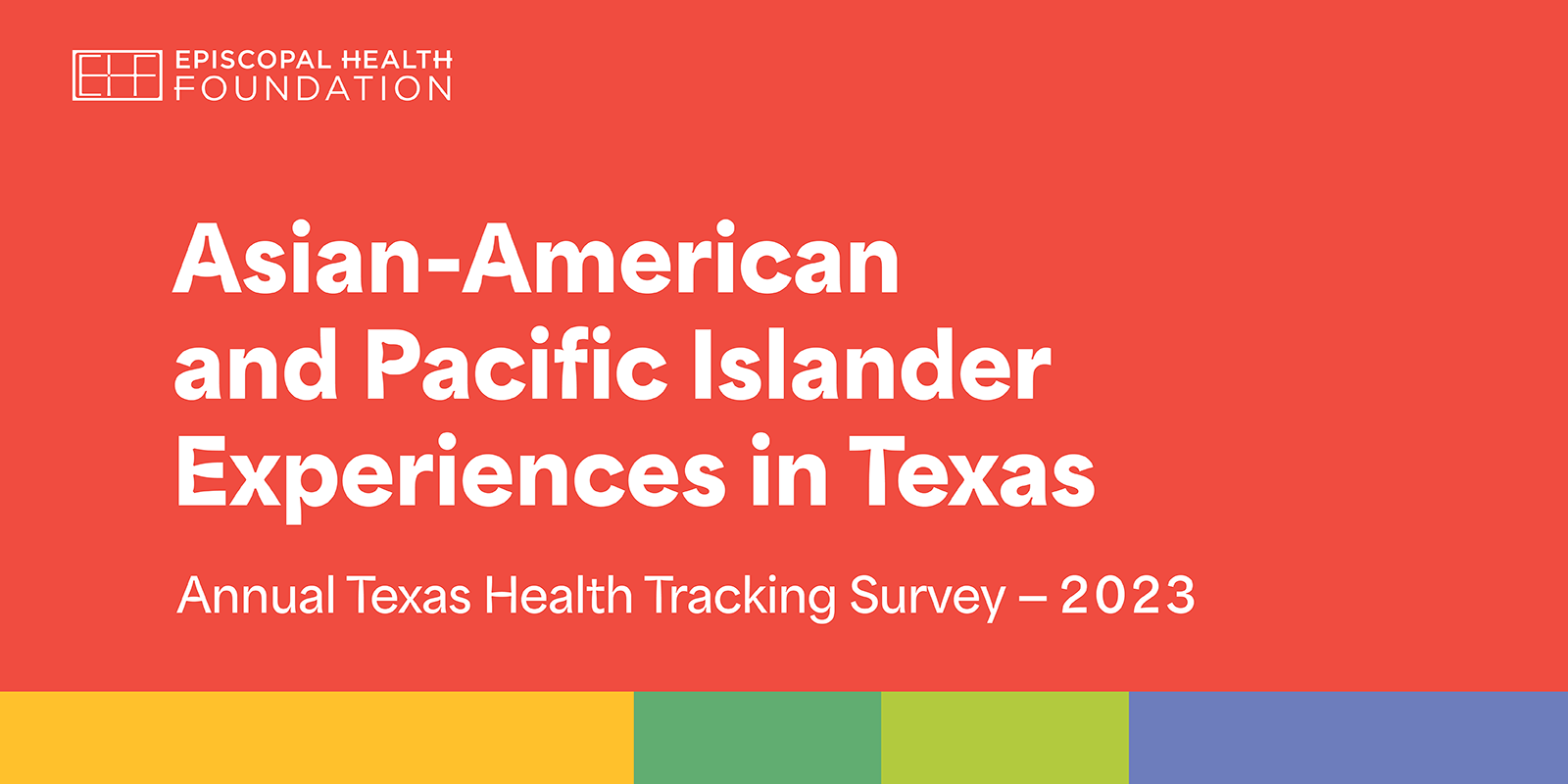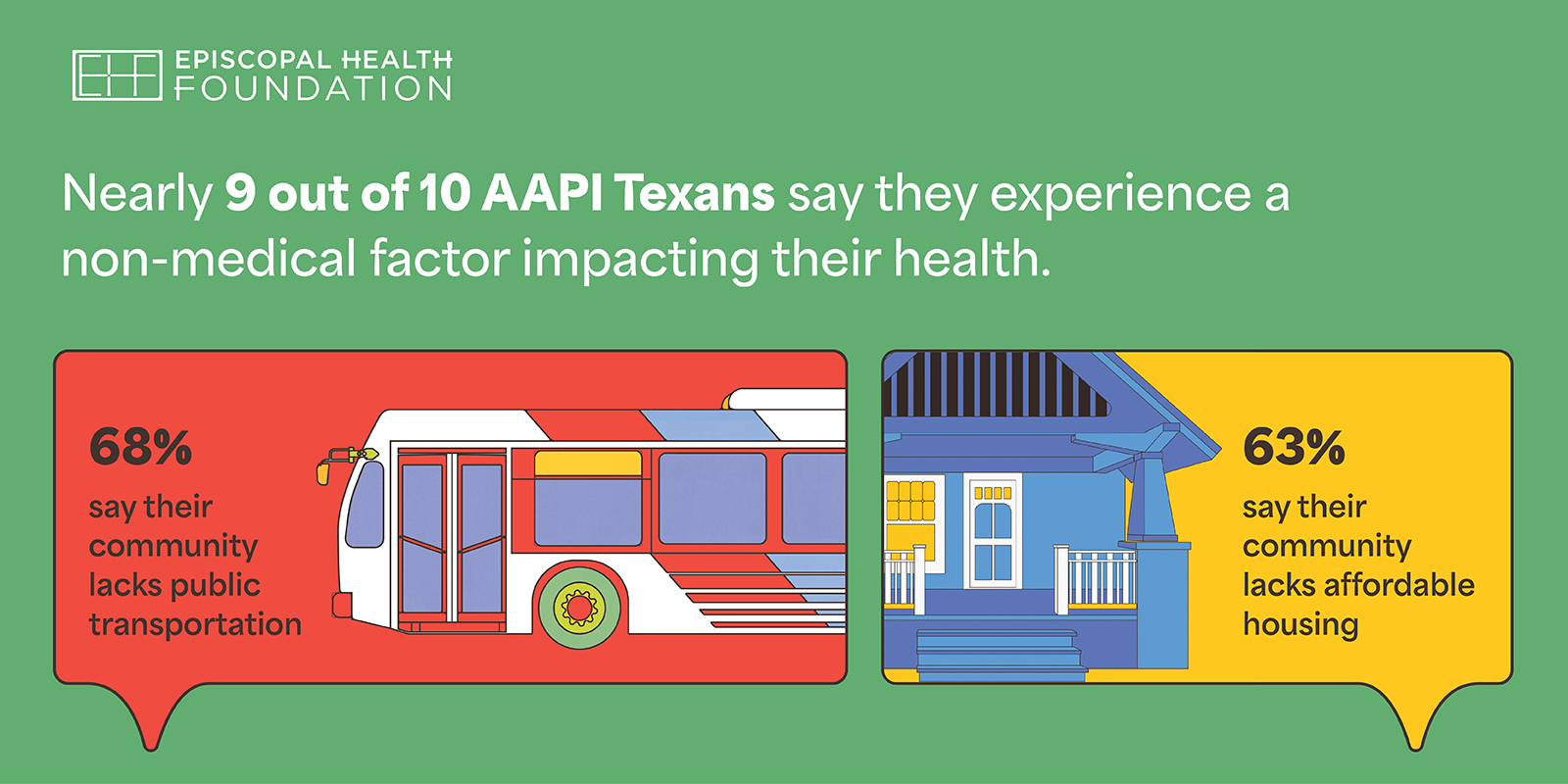EHF’s survey finds that 48% of AAPI Texans said they skipped or postponed some sort of health care because of the cost. That includes things like check-ups, medical tests, and getting prescriptions filled. In addition, 41% say it was somewhat or difficult for them to afford care for them and their family. Researchers also find that two in 10 (22%) of AAPI Texans say they had difficulty paying their medical bills after they received care.
“The population of Asian Americans in Texas has grown at a faster rate than any other group over the past 20 years,” says Dr. Ann Barnes, EHF’s president and CEO.
More than 1.8 million Asian Americans and Pacific Islanders live in Texas, almost 6% of the state’s overall population. Texas ranks third among all states with the largest AAPI population, after California and New York.

More than half of AAPI Texans say the state government is not doing enough to ensure Texans in need get care
EHF’s poll finds that 55% of AAPI Texans say the state isn’t doing enough to make sure that low-income adults can get the health care they need. A similar amount also say that the state isn’t doing enough for children (54%), pregnant women (54%) and immigrants (52%) to get care.
In addition, researchers find that two-thirds (64%) of AAPI Texans support expanding Medicaid health insurance coverage in Texas to cover more low-income people.
It’s not just problems getting medical care that is affecting the overall health of AAPI Texans. EHF’s poll finds that 89% say they live in communities without enough non-medical resources that impact health.
EHF’s poll shows that two important non-medical resources that impact AAPI Texans are lack of public transportation (68%) and not enough affordable housing (63%).
Researchers found that 34% of AAPI Texans say it’s difficult to travel to at least one kind of health facility or other needed resources like grocery stores or parks. The poll also shows that nearly all AAPI Texans (98%) view rising housing costs as a problem in the state.
In addition, three quarters of AAPI Texans view food deserts (75%) and food insecurity (74%) as problems.
Researchers found that more than nine in 10 (92%) of AAPI Texans say that it is at least somewhat important for Medicaid health insurance in Texas to address non-medical factors that impact health with 34% saying that it’s extremely important.
“Like our previous statewide polls have shown, many Texans clearly see the overall health benefit of Medicaid and other health insurance plans paying for things like food prescriptions and interventions by community health workers,” Barnes says.
Methodology
SSRS conducted the 2023 Texas Health Tracking Survey on behalf of Episcopal Health Foundation from October 18 through December 19, 2023. Similar studies have been fielded on behalf of the EHF since 2018. The 2023 survey was conducted online and by telephone with a representative sample of 1,956 Texas adults (age 18 or older) including 301 who identify as Asian American or Native Hawaiian/Pacific Islander. Interviews were administered in English (n=1,843), Spanish (n=87), Chinese (n=19) and Vietnamese (n=7). The sample includes 938 Texas adults reached through the SSRS Opinion Panel2 online (n=875) and by phone (n=63) as well as adult Texas residents reached through an address-based sample (ABS) and completed the survey online (n=937) or by phone (n=81).

